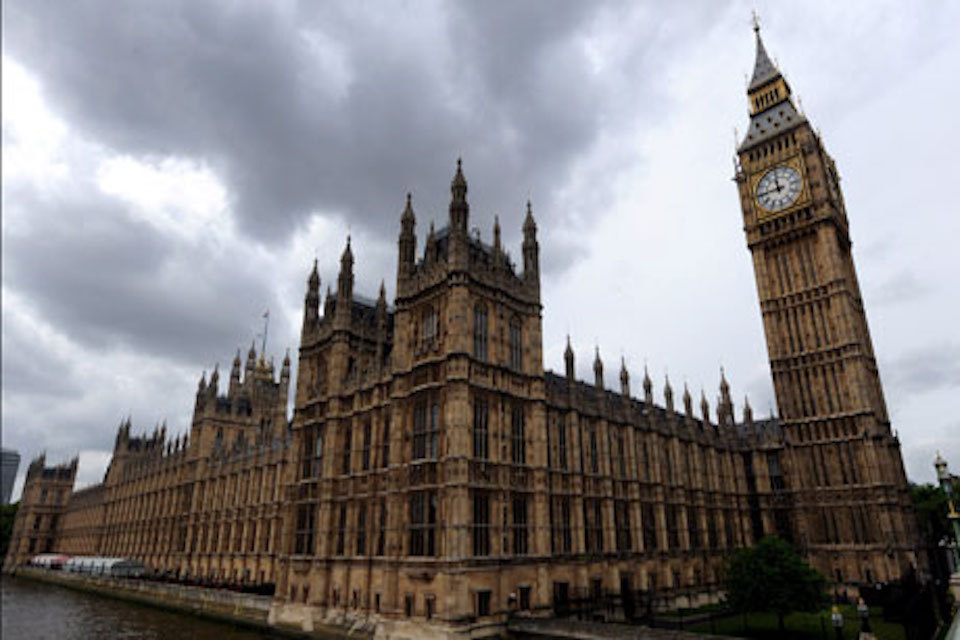UK government should bet on low-carbon electrified rail freight

The UK government must invest in low-carbon fuels for rail, or will fail in its ambitions for net-zero, warns a new report drawn up by the UK Transport Committee. According to the advisory body, the government must set aside its current strategy and back specific technology solutions to decarbonise the UK’s transport sector, or risk failing its targets for cutting emissions.
In its ‘Fuelling the Future’ report, just published, the cross-party Transport Committee has made a raft of recommendations, covering most aspects of the transport and logistics industry. It has also urged the government to move beyond what it calls a deliberately technology agnostic mindset. Significantly, the committee puts electrification of the rail freight sector among its primary recommendations.
Government department has yet to commit a strategy
The Transport Committee says the government must take a more decisive role in reshaping the transport sector. It has asked the government to set aside its 2019 Technology Innovation Strategy, which sets out the foundations needed for government to innovate through emerging technologies. The committee says that the strategy doesn’t go far enough in making solid recommendations.

According to the committee, the government has set a number of targets to decarbonise different sections of the transport sector over the next 30 years, but the government’s Department for Transport (DfT) has chosen to take a neutral stance on which technologies it believes industry should focus on developing, in order for those carbon-cutting targets to be achievable. The committee says in its new report that, as far as rail freight is concerned, the clear advantage lies with electrification. It would appear however that the DfT is reluctant to get on board with the investment required to make an electrified freight network viable.
No reason not to meet net-zero 2050 … so hit net-zero by 2050
The report urges ministers to speed up progress with electrifying the Britain’s railways. It says just 38 per cent of the network is fully electrified, but the government has committed to removing all diesel-only trains by 2040, including freight. The report also recommends that DfT publish a long-term strategy for decarbonising the rail network, with a vision for what proportion of the future network will use electrification, supplemented by hydrogen, battery-powered and bi-mode or tri-mode traction trains. This is in recognition of suggestions that it may not be economical to electrify every railway in isolated areas of the country. The new strategy should be supported by appropriate costings and a credible delivery plan with targets and milestones.

In practice
Giving evidence to the committee, Maggie Simpson, the director general of the representative body the Rail Freight Group, said there is no reason in theory why the net-zero 2050 target cannot be met through electrification. “Practically, it is a different question”, she said. “Not all of the network is electrified today, and even though the government are committed to some new schemes they certainly will not give full network coverage.
“Some of the schemes they are committing to have gaps in them where freight trains operate. If you take Midland Mainline, it is great that the completion of that has been announced, but some of the freight routes between Corby and Silsden are excluded from that. Realistically, we will not have enough of the network electrified by 2050 for all rail freight to be using electrification, so we will have to look at alternatives for those parts of the network where we cannot.”
Physics in action
The Fuelling the Future report rather surprisingly concludes that freight trains pose a particular challenge for decarbonisation. It makes an anomalous comparison with passenger rail transport. The report says that significantly more power is needed to move freight trains compared to passenger trains. Well, they are rather heavier and ‘that’s physics in action’ might be the response of most operators. That comparison may be prompted by evidence from the UK Petroleum Industries Association. They told the committee that rail freight may pose the biggest challenge to the Government’s rail decarbonisation aims, with only 16 per cent of the UK’s freight locomotive fleet currently electric, in part due to the lack of electrified lines.
Helen Simpson, Innovation and Projects Director at the rolling stock leasing company Porterbrook, reiterated this point, in terms of the 2050 objective. “We do not yet have a solution for all freight lines”, she said. “We are going to have to look at something else or increase the amount of electrification to solve that issue.” Witnesses agreed that the decarbonisation of rail will mostly be achieved via electrification, but there will be individual lines on which electrification is not possible or does not make economic sense. In those cases decarbonisation could be achieved by hydrogen, battery or biofuels. What the committee would like to see is a spark of commitment from the DfT, preferably a spark from new overhead electric lines.
Are you a gamechanger?
Are you a gamechanger in the rail freight industry? And do you want to spread the word? Railfreight.com is currently producing its first-ever magazine, titled The Gamechangers of the Industry. Your companycan be included in this magazine. Interested? You can find more information on this webpage.





Already, by far most energy effective on shore mode, for the needed, Shift from road to rail, now quality of railway service rendered, has to be top priority!
Weak Link of chain, railway infrastructure, the electrification, as well as track, now has to prove sustainable and redundant, thus robust!
(Now, 2023, not even core clients afford luxury of not bothering about “JIT”…)
High quality (on time) supply chains, now is more important than ever – an pays!